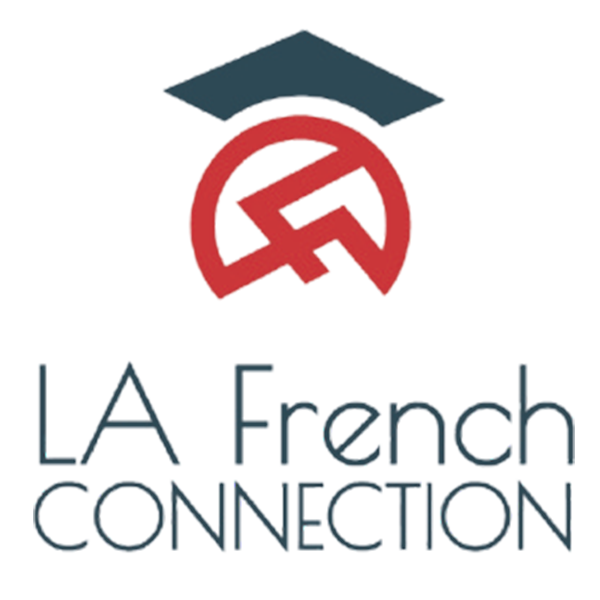How to Prepare for the French Proficiency Test for Canada PR

If you’re planning to apply for Canada PR, boosting your CRS (Comprehensive Ranking System) score with French language skills can give you a significant advantage. The Canadian government awards up to 50 additional points for PR for bilingual candidates who demonstrate proficiency in both English and French.
At La French Connection Institute, we specialize in helping students and professionals prepare for French proficiency tests, such as TCF, TEF, DELF, and TEFAQ, which are key exams required for Canadian immigration. In this blog, we’ll guide you through the best strategies to prepare for these tests, along with the broader benefits of learning French for career and academic growth.
Why French Matters for Canada PR
Canada is a bilingual country, and French is an official language alongside English. By demonstrating proficiency in French, you not only increase your CRS score but also improve your chances of settling in provinces like Quebec, New Brunswick, and Ontario, where French is widely spoken.
The Immigration, Refugees and Citizenship Canada (IRCC) awards:
- Up to 50 additional points for strong French skills (with or without English).
- Extra points for bilingual candidates, making your profile more competitive.
This makes French a valuable asset for Express Entry candidates, especially those struggling to maximize their CRS score through other means.
Which French Test Should You Take for Canada PR?
Not all French tests are accepted by IRCC. The approved exams include:
1. TCF (Test de Connaissance du Français) for Canada
- Designed specifically for Canadian immigration.
- Evaluates listening, reading, speaking, and writing skills.
- Valid for two years.
2. TEF (Test d’Évaluation de Français) Canada
- Accepted by IRCC and Quebec immigration (MIDI).
- Assesses comprehension and expression in French.
- Also valid for two years.
3. DELF (Diplôme d’Études en Langue Française)
- A lifelong certification (doesn’t expire).
- Recognized globally for academic and professional purposes.
4. TEFAQ (Test d’Évaluation de Français adapté au Québec)
- Specifically for Quebec immigration.
- Focuses on speaking and listening skills.
At La French Connection Institute, we offer tailored coaching for all these tests, ensuring you achieve the required CLB (Canadian Language Benchmark) level for maximum points.
How to Prepare for the French Proficiency Test
1. Understand the Test Format
Each exam has a different structure. For example:
- TCF Canada has multiple-choice questions for reading and listening, plus speaking/writing tasks.
- TEF Canada includes oral interaction, written expression, and comprehension sections.
Knowing the format helps you strategize your preparation.
2. Strengthen Core Language Skills
- Listening: Practice with French podcasts, news (RFI, TV5Monde), and movies.
- Speaking: Engage in conversations with native speakers or join La French Connection’s speaking clubs.
- Reading: Read French articles, books, and official test materials.
- Writing: Practice essays, emails, and formal letters in French.
3. Take Mock Tests
Simulating real exam conditions helps with time management and confidence. La French Connection provides full-length mock tests with personalized feedback.
4. Enroll in a Structured Course
Self-study can only take you so far. A structured course at La French Connection Institute ensures:
- Expert guidance from certified French trainers.
- Customized study plans based on your level.
- Regular assessments to track progress.
5. Focus on Vocabulary & Grammar
French grammar can be tricky, especially verb conjugations and gendered nouns. Our courses emphasize high-frequency vocabulary used in immigration tests.

Beyond Canada PR: How French Boosts Your Career & Academics
Learning French isn’t just for immigration, it opens doors to high-paying jobs and global education opportunities.
1. French for High-Paying Jobs in India & Abroad
- Multinational Companies (MNCs): Companies like L’Oréal, Airbus, Capgemini, and Michelin prefer bilingual candidates.
- BPO & Customer Support: French-speaking professionals earn 30-50% higher salaries in international call centers.
- Diplomacy & Tourism: Embassies, UN agencies, and tourism boards actively recruit French speakers.
2. French for Academic Growth
- Study in the UK & Europe: Many UK universities offer scholarships for students with French proficiency.
- Erasmus Programs: French is a key language for student exchange programs in Europe.
- Research Opportunities: Access to top academic journals and institutions in France, Switzerland, and Belgium.
At La French Connection, we’ve helped students and professionals leverage French for career growth, higher studies, and global mobility.
Why Choose La French Connection Institute?
- Experienced Trainers: Learn from certified French instructors with years of teaching experience.
- Customized Coaching: Personalized study plans based on your goals (Canada PR, job opportunities, academics).
- Proven Results: Hundreds of students have successfully cleared TCF/TEF with high scores.
- Flexible Learning: Online and offline classes to fit your schedule.
Final Tips for Success
- Start Early – Don’t wait until the last minute. Give yourself at least 3-6 months of preparation.
- Practice Daily – Consistency is key. Even 30 minutes of daily French practice helps.
- Immerse Yourself – Watch French shows, listen to songs, and think in French.
- Join a Study Group – Learning with peers keeps you motivated.
Conclusion
Cracking the French proficiency test for Canada PR is achievable with the right strategy and guidance. At La French Connection Institute, we provide the best French coaching to help you maximize your CRS score, unlock job opportunities, and achieve academic success.
Ready to boost your Canada PR application with French? Contact La French Connection Institute today and start your journey toward bilingual success.
